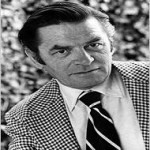Learning (At Last) to Value Water
In 1774, Ben Franklin said, “When the well’s dry, we know the worth of the well.”
“He was wrong,” author Robert Glennon told an audience of about 100 Tuesday at the Alumni Memorial Union at Marquette University. Even as wells and water supplies move ominously closer to dry in parts of the United States, the public and many policy makers are not responding in ways that could avert major impacts, warned Glennon, whose books include Unquenchable: America’s Water Crisis and What to Do About It, published last spring.
“We don’t value water in the United States,” Glennon told the session, part of the “On the Issues” series hosted by Mike Gousha, Marquette Law School Distinguished Fellow in Law and Public Policy.
Wisconsin is not standing at the precipice of a water crisis to the same degree as metropolitan Atlanta and much of the western United States, but it would still be wise to undertake public education efforts here and to make more effective water use decisions, Glennon said.

 Police found marijuana hidden in a car that Maurice Crowder and a colleague tried to ship from Arizona to Illinois. Crowder was then charged with, convicted of, and sentenced for two crimes: attempted possession with intent to distribute and conspiracy, both in violation of 21 U.S.C. § 846. Sounds like double-dipping, right? After all, both crimes of conviction arose from the same underlying criminal plot. Crowder appealed to the Seventh Circuit on this basis, arguing that he could not be punished for both crimes.
Police found marijuana hidden in a car that Maurice Crowder and a colleague tried to ship from Arizona to Illinois. Crowder was then charged with, convicted of, and sentenced for two crimes: attempted possession with intent to distribute and conspiracy, both in violation of 21 U.S.C. § 846. Sounds like double-dipping, right? After all, both crimes of conviction arose from the same underlying criminal plot. Crowder appealed to the Seventh Circuit on this basis, arguing that he could not be punished for both crimes. In a few months, the Marquette University Law School community will pack up and move to its new building, located on Tory Hill. Perhaps this is a good time to consider whether any actual “Tories” will reside there. This is doubtful, because American political thought does not have a history of embracing the Tory philosophy. Nonetheless, in today’s political climate, we all might benefit from hearing an occasional Tory point of view.
In a few months, the Marquette University Law School community will pack up and move to its new building, located on Tory Hill. Perhaps this is a good time to consider whether any actual “Tories” will reside there. This is doubtful, because American political thought does not have a history of embracing the Tory philosophy. Nonetheless, in today’s political climate, we all might benefit from hearing an occasional Tory point of view.